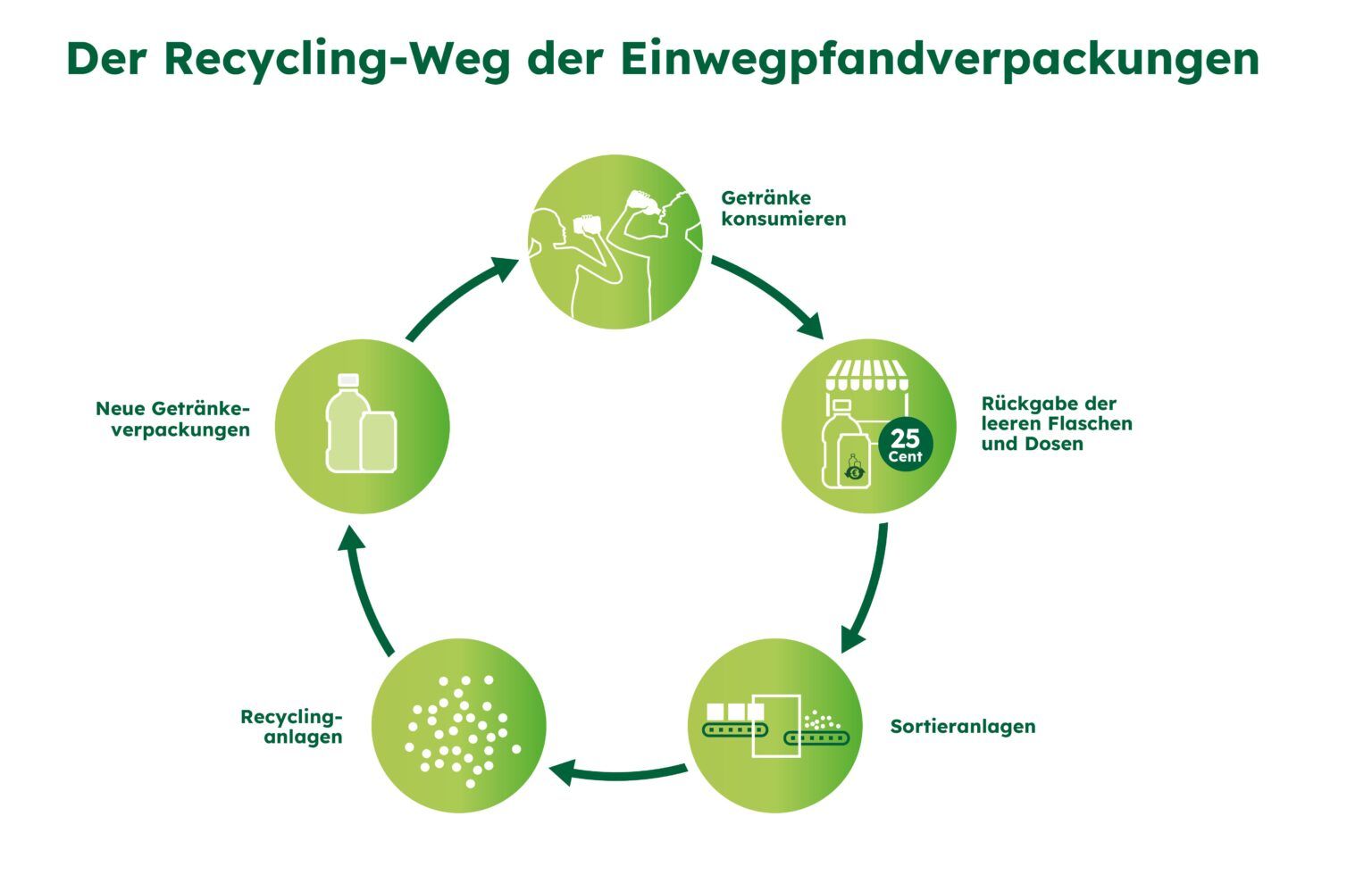Introduction
Digitalizing the Circular Economy
Austria has set itself a bold goal with its new single-use deposit system: by 2027, 90% of all PET bottles and metal cans are to be collected and kept within a sustainable recycling loop. Leading this initiative is the newly founded EWP Recycling Pfand Österreich GmbH, which successfully built and launched a functioning return system within a remarkably short timeframe. The project is supported by technology partners Microsoft and the Public Cloud Group. This success story shows how such a system can be built from the ground up—and launched right on schedule.
The Challenge
From a Blank Slate to the Digital Backbone of a Green System
When EWP was established in late 2022, it had no legacy systems to build on—just a clear mission. “We truly started from scratch. From day one, we had to be operational—there was no time for trial and error,” recalls Monika Fiala, EWP’s Managing Director.
In just one year, the team grew from three to around 20 employees. By early 2025, all system components had to be live: interfaces to and from return machines, centralized systems for managing deposits, logistics and materials and a reliable solution for deposit settlements. Within the first four months of launch, over 100 million single-use containers were returned through a digital ecosystem designed to grow with demand.
The Solution
100% Cloud, 100% Future-Proof
“We wanted an environment that is reliable, flexibly scalable and built on a well-established partner network,” says Simon Parth, Managing Director of EWP. Microsoft Azure was the platform of choice—offering top-tier security, flexible scalability and compatibility with a wide range of local partners.
A key factor was the new Microsoft Cloud Region in Austria. “It was important to us to keep value creation within the country. We deliberately chose a solution that enables local data storage in the future,” Parth explains. The final technical implementation was carried out with the Public Cloud Group, which supported EWP in building the infrastructure, running operations and connecting the various technical systems. The entire system architecture is based on a software-as-a-service model—fully cloud-native, with no local servers.
“Winning the public tender marked the beginning of an exciting journey for us,” says Martin Schweinberger, Head of Sales AT/CH at the Public Cloud Group. “Working closely with EWP, we successfully deployed a fully cloud-based deposit system on Microsoft Azure in just a few months. This was only possible thanks to standardized processes and mature Azure services. Today, the system runs reliably—and we’re already focused on optimization and scaling.”
Results and Benefits
Scalability Meets Sustainability
More than 6,200 return machines, around 14,000 return locations and over 2,000 different products: the return system is complex and only works efficiently when all stakeholders are involved—from beverage producers and supermarkets to small local retailers. Containers can be returned via machines or manually at kiosks and gas stations. In both cases, the packaging must be intact and the label readable for proper identification and deposit refunds. All points of sale that offer deposit-marked products are required to accept returns. If they wish to have full collection bags picked up, they must register as return points. This is done through the EWP portal, where collection bags can also be ordered and pickups scheduled. Each return partner is digitally registered, allowing for accurate billing.
“Our goal is a fully automated system—from returns to data processing,” explains Simon Parth. Currently, retailers receive daily reports on the number of returns or rejections. In the future, this data will be available automatically via interfaces. New locations should also be seamlessly digitally integrated—in line with a system that thinks ahead and grows along with demand.

The recycling path of disposable packaging
Responsible Digitalization
At EWP, efficiency is not just a buzzword—it’s a standard. This is reflected in every process and in the choice of partners. “We want to build one of the most efficient deposit systems in Europe. For that, we need technology that grows with us,” emphasizes Fiala.
EWP and Microsoft also share a strong commitment to sustainability. The cloud infrastructure powering the system will soon run on the Microsoft Cloud Region Austria—designed to be circular, energy-efficient, and powered by renewable energy from Austria. “The collaboration with EWP shows how technology can support a genuine sustainability goal and help reimagine an entire system,” says Hermann Erlach, General Manager of Microsoft Austria. “We are especially pleased that our cloud platform is contributing to a more efficient and environmentally friendly Austria.”
Looking Ahead
The EU Directive 2019/904 set a clear framework: by 2029, 90 percent of all single-use plastic beverage bottles must be collected separately. Austria is pursuing this goal with a nationwide deposit system. This brings high demands for organization, logistics and technology.
The digital infrastructure EWP has built forms the backbone of this system. It enables return processes, billing and further development to be efficient, transparent and traceable. In a world where ecological goals increasingly rely on technological solutions, this project shows how circular economy can be implemented in practice—pragmatic, data-driven and with an eye on the bigger picture.
The complete success story is also available here.
About PCG
Public Cloud Group (PCG) supports companies in their digital transformation through the use of public cloud solutions.
With a product portfolio designed to accompany organisations of all sizes in their cloud journey and competence that is a synonym for highly qualified staff that clients and partners like to work with, PCG is positioned as a reliable and trustworthy partner for the hyperscalers, relevant and with repeatedly validated competence and credibility.
We have the highest partnership status with the three relevant hyperscalers: Amazon Web Services (AWS), Google, and Microsoft. As experienced providers, we advise our customers independently with cloud implementation, application development, and managed services.
